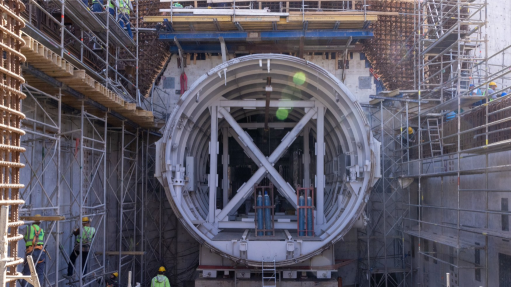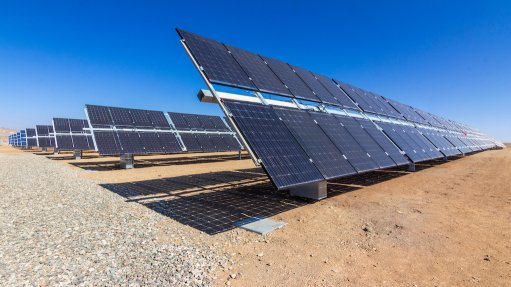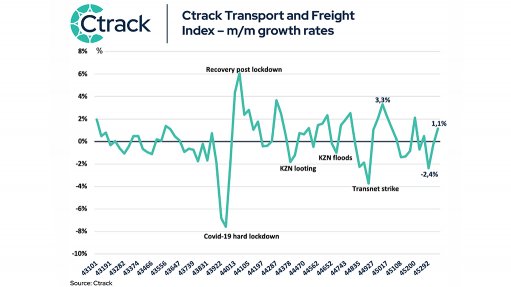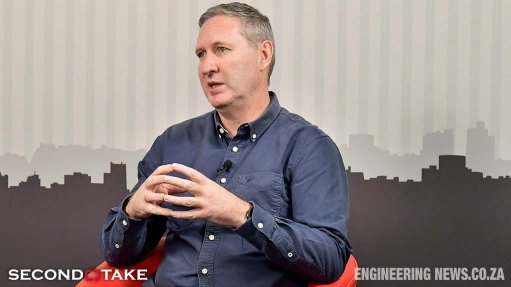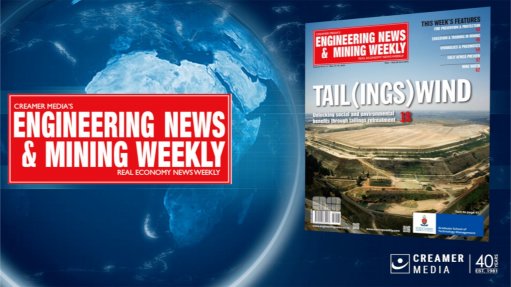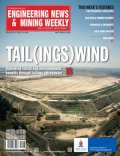High quality traffic and transportation engineering services keep renewable energy projects in the fast lane

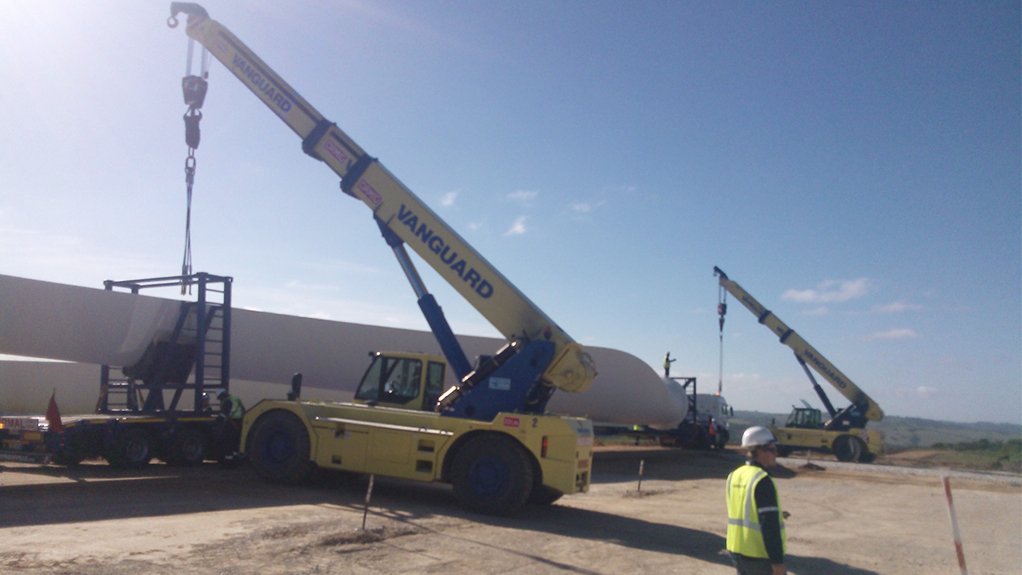
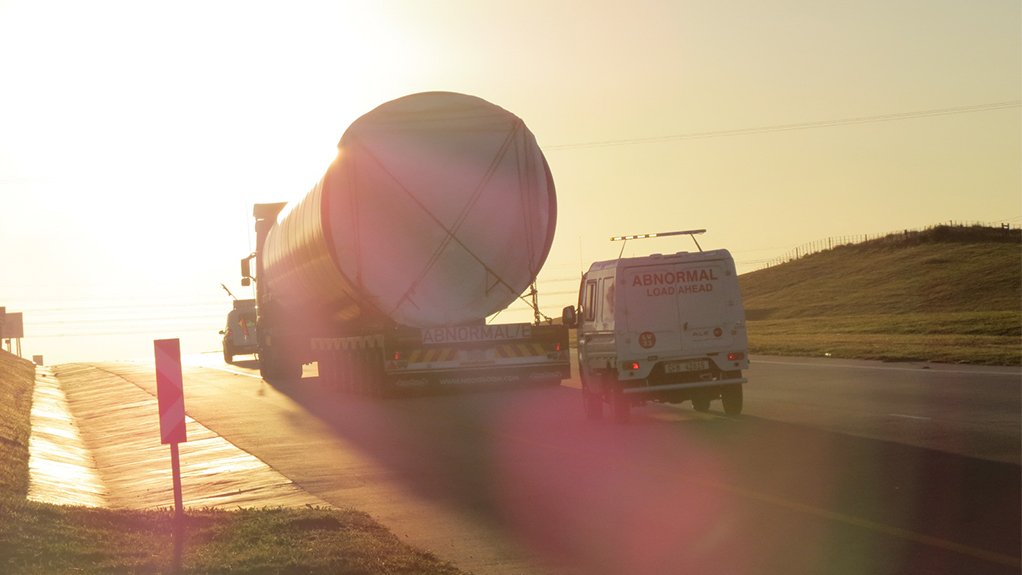
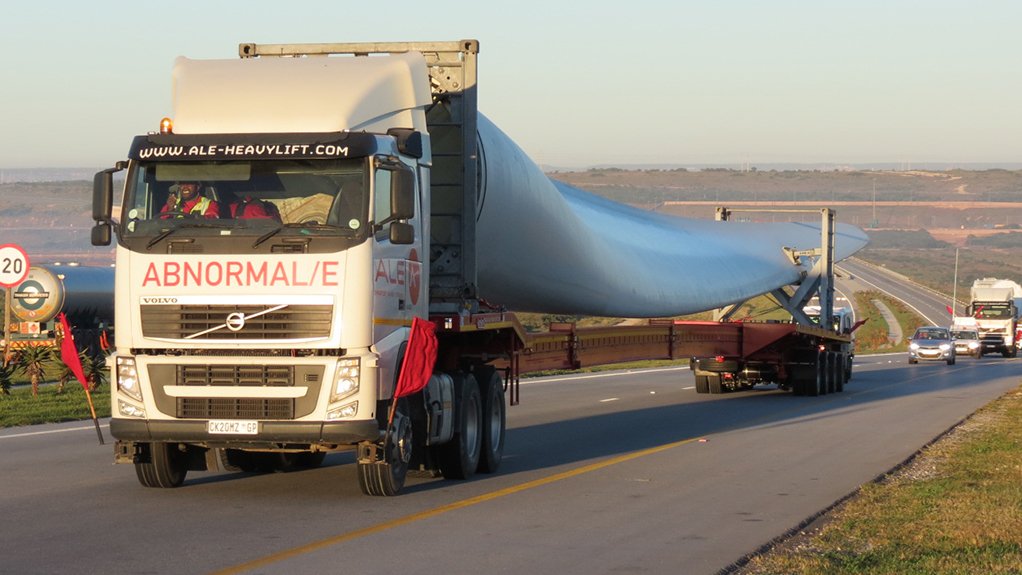
The most challenging and interesting traffic and transportation engineering studies undertaken by the firm for the renewable energy market have been for developers of wind farms.
JG Afrika has already completed about 40 traffic and transportation engineering studies for wind developers.
Some of the factors that are taken into consideration during the traffic and transportation planning include challenging gradients, route hazards, as well as underground and over-ground services.
This article has been supplied as a media statement and is not written by Creamer Media. It may be available only for a limited time on this website.
JG Afrika, a leading firm of consulting engineers, continues to build on a long and proud legacy of providing high quality traffic and transportation engineering services to prominent international developers of renewable energy projects in the country. This is as the Renewable Energy Independent Power Producer Procurement (REIPPP) programme starts gaining traction following a period of hiatus.
To date, over 100 independent-power producer (IPP) projects have been procured from four bidding round windows and more are to be announced in the future as South Africa strives to generate almost 18 000MW of electricity from renewable energy sources by 2030.
These include utility-scale solar, gas-to-power, biomass, waste-to-energy and wind projects, all of which require unique specialist studies to ensure the efficient and safe transportation of imported components from the country’s ports to various development sites.
Iris Wink, a JG Afrika Associate who leads the firm’s Transport & Traffic Engineering Division in Cape Town, has successfully completed about 100 traffic and transportation engineering studies for developers of various renewable energy projects throughout her long career as a transport and traffic engineer.
Passionate about sustainable energy, specifically wind, she also helped the firm develop its transport and traffic engineering services for the renewable energy sector and has successfully completed about 60 related studies for developers of these projects since joining the firm in 2012. These studies have played an invaluable role in keeping renewable energy projects on track and mitigating the need for potential design changes to road infrastructure and upgrades at a late stage in the construction programme.
“Depending on the size of the project, JG Afrika is invited by developers to undertake detailed traffic and transportation studies fairly early on in its lifecycle, such as in the prefeasibility and in the Environmental Impact Assessment stages where a more general study is undertaken. Our comprehensive traffic and transportation engineering services for developers of renewable energy projects include detailed access risk assessments, route management and transport logistics studies. This is in addition to studying the impact of renewable energy projects on road networks and communities, as well as undertaking Transport Impact Assessments and conceptual access road designs,” she says.
To date, the most challenging and interesting traffic and transportation engineering studies undertaken by JG Afrika’s team of transportation and traffic engineers for the renewable energy market have been for developers of wind farms.
The firm has already completed about 40 traffic and transportation engineering studies for this segment of the renewable energy market and it is currently undertaking six more related assignments for developers of wind farms.
Notably, wind comprises a larger portion of planned renewable energy investments in South Africa and it is anticipated that it will contribute just under 60% of clean energy-related emissions reductions over project lifespans.
Wind farms now supply up to 52% of the country’s clean energy, with a total of 22 operational wind IPPs with an installed capacity of 2 078MW currently connected to the national grid and more than 900 wind turbines located throughout three provinces of South Africa.
A total of 6 360MW of wind power has already been determined for procurement from IPPs. This is 69% of the capacity planned by 2030 and there are currently 36 preferred wind IPP bidders, providing a combined capacity of 3 366MW, under the latest round of the REIPPP programme.
However, one of the challenges in executing these projects is their extremely remote locations. They are becoming more isolated, placing significant logistical constraints on both the developer, as well as the engineer, procure and construction teams appointed to execute these large projects.
“International original equipment manufacturers’ components, including the blades, nacelles and tower sections, have to be transported over longer distances from a suitable point of entry to outlying rural areas that are not adequately or yet serviced by roads. There has been at least one case where a project was scuppered because the abnormal loads trucks would have been unable to access the project site, despite numerous attempts to find a workable solution. Based on the findings of our studies during the early planning phases of these projects, the location of many wind turbine generators have also had to be relocated to areas that can be accessed by the specialised haulage companies that will be appointed to transport the valuable mechanical equipment,” Wink says.
She adds that the components are also becoming larger, adding a further level of complexity to transport and logistics planning on these projects. For example, JG Afrika has undertaken traffic and transportation studies for wind farms that have wind-generator turbines with hub heights of up to 190m to reach higher above the earth’s surface where stronger winds blow. Their more aerodynamically efficient blades are up to 95m in length, while the nacelle, alone, can weigh up to 56 tonnes.
This is opposed to those wind projects that were completed during earlier windows of the REIPPP programme that entailed around 60m-high wind turbines with blade lengths of between 45m and 50m. The components were hence still shorter.
Transporting a single blade all the way from the port of entry to the crane laydown area or directly to the location of a wind turbine, where they are lifted and placed on the nacelle by contractors working to strict deadlines, is a significant undertaking. The task at hand entails using specialised imported trucks and self-steering trailers to
negotiate sharp turns. In some instances, the trailers are also fitted with cranes to lift the blades over obstacles as they make their way from the ports, such as Ngqura in the Eastern Cape.
Specialist drivers and technicians help to transport these abnormal loads over predetermined routes. Some of the other factors that are taken into consideration during the traffic and transportation planning include challenging gradients, route hazards, as well as underground and over-ground services. This is in addition to challenging factors, such as black-spots, sharp bends, overhead height restrictions, weather conditions, and telecommunications and cable clearances.
Certainly, these projects complement the firm’s already strong participation in the REIPPP programme where JG Afrika has provided other quality professional engineering services. For example, the firm delivered structural review engineering and construction monitoring services for the 50MW !Khi Solar One Tower, the tallest concentrating solar power at the time, and served as owner’s engineer on the Noblesfontein Wind Farm, relying heavily upon its geotechnical specialist consulting services.
These extensive experience and learning have also helped inform the services provided by the Transport and Traffic Engineering Department to the renewable energy sector and positioned the firm as among one of the local leaders in the field.
Wink is optimistic about the future of renewable energy in the country, considering President Cyril Ramaphosa’s pledge to restart the REIPPP programme by initiating the fifth bidding window in his State of the Nation Address earlier this year. This is despite delays to the implementation of this plan due to the lockdown to contain the spread of the Covid-19 virus.
“South Africa has lost a lot of manufacturing capacity because of previous delays to the REIPPP programme. A case in point is a wind tower factory in the Eastern Cape that went into liquidation due to the postponement of projects. Locally manufactured tower sections for wind projects would have eased some of the logistical challenges surrounding these projects. This is over-and-above contributing towards the localisation targets set out by the REIPPP programme. Certainly, a resolute commitment from government to renewable energy bodes well for the entire industry,” she concludes.
Comments
Press Office
Announcements
What's On
Subscribe to improve your user experience...
Option 1 (equivalent of R125 a month):
Receive a weekly copy of Creamer Media's Engineering News & Mining Weekly magazine
(print copy for those in South Africa and e-magazine for those outside of South Africa)
Receive daily email newsletters
Access to full search results
Access archive of magazine back copies
Access to Projects in Progress
Access to ONE Research Report of your choice in PDF format
Option 2 (equivalent of R375 a month):
All benefits from Option 1
PLUS
Access to Creamer Media's Research Channel Africa for ALL Research Reports, in PDF format, on various industrial and mining sectors
including Electricity; Water; Energy Transition; Hydrogen; Roads, Rail and Ports; Coal; Gold; Platinum; Battery Metals; etc.
Already a subscriber?
Forgotten your password?
Receive weekly copy of Creamer Media's Engineering News & Mining Weekly magazine (print copy for those in South Africa and e-magazine for those outside of South Africa)
➕
Recieve daily email newsletters
➕
Access to full search results
➕
Access archive of magazine back copies
➕
Access to Projects in Progress
➕
Access to ONE Research Report of your choice in PDF format
RESEARCH CHANNEL AFRICA
R4500 (equivalent of R375 a month)
SUBSCRIBEAll benefits from Option 1
➕
Access to Creamer Media's Research Channel Africa for ALL Research Reports on various industrial and mining sectors, in PDF format, including on:
Electricity
➕
Water
➕
Energy Transition
➕
Hydrogen
➕
Roads, Rail and Ports
➕
Coal
➕
Gold
➕
Platinum
➕
Battery Metals
➕
etc.
Receive all benefits from Option 1 or Option 2 delivered to numerous people at your company
➕
Multiple User names and Passwords for simultaneous log-ins
➕
Intranet integration access to all in your organisation









